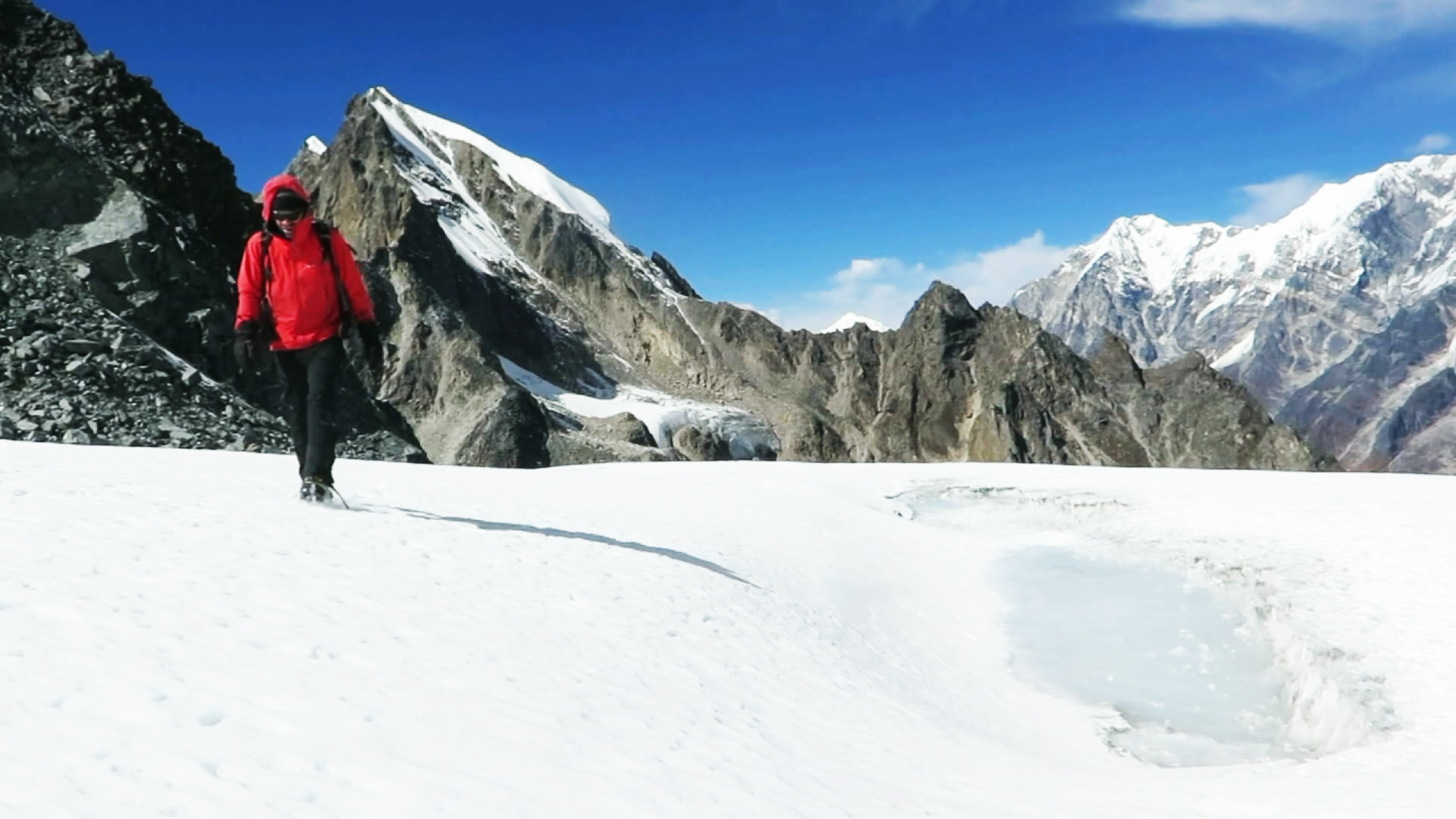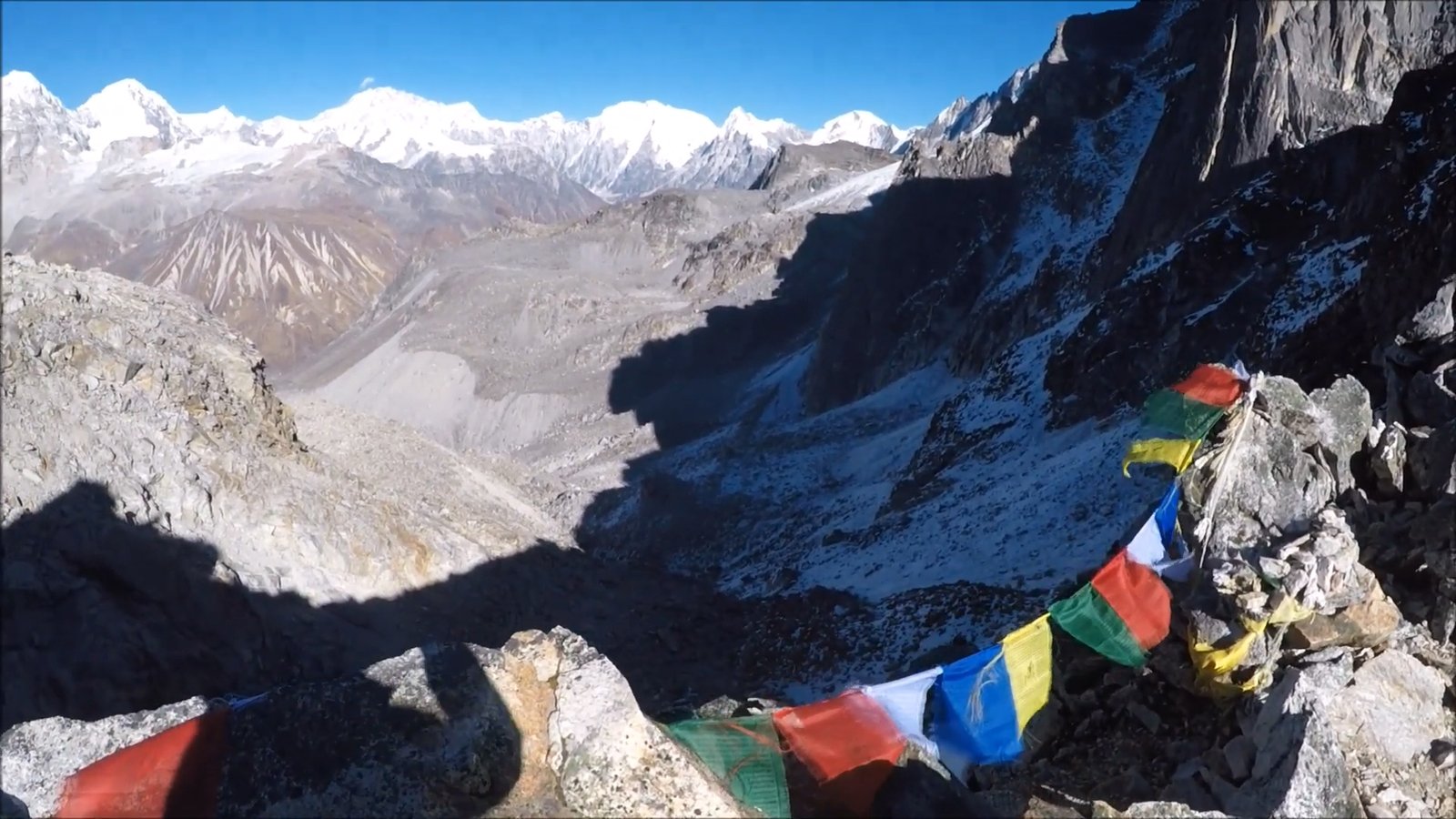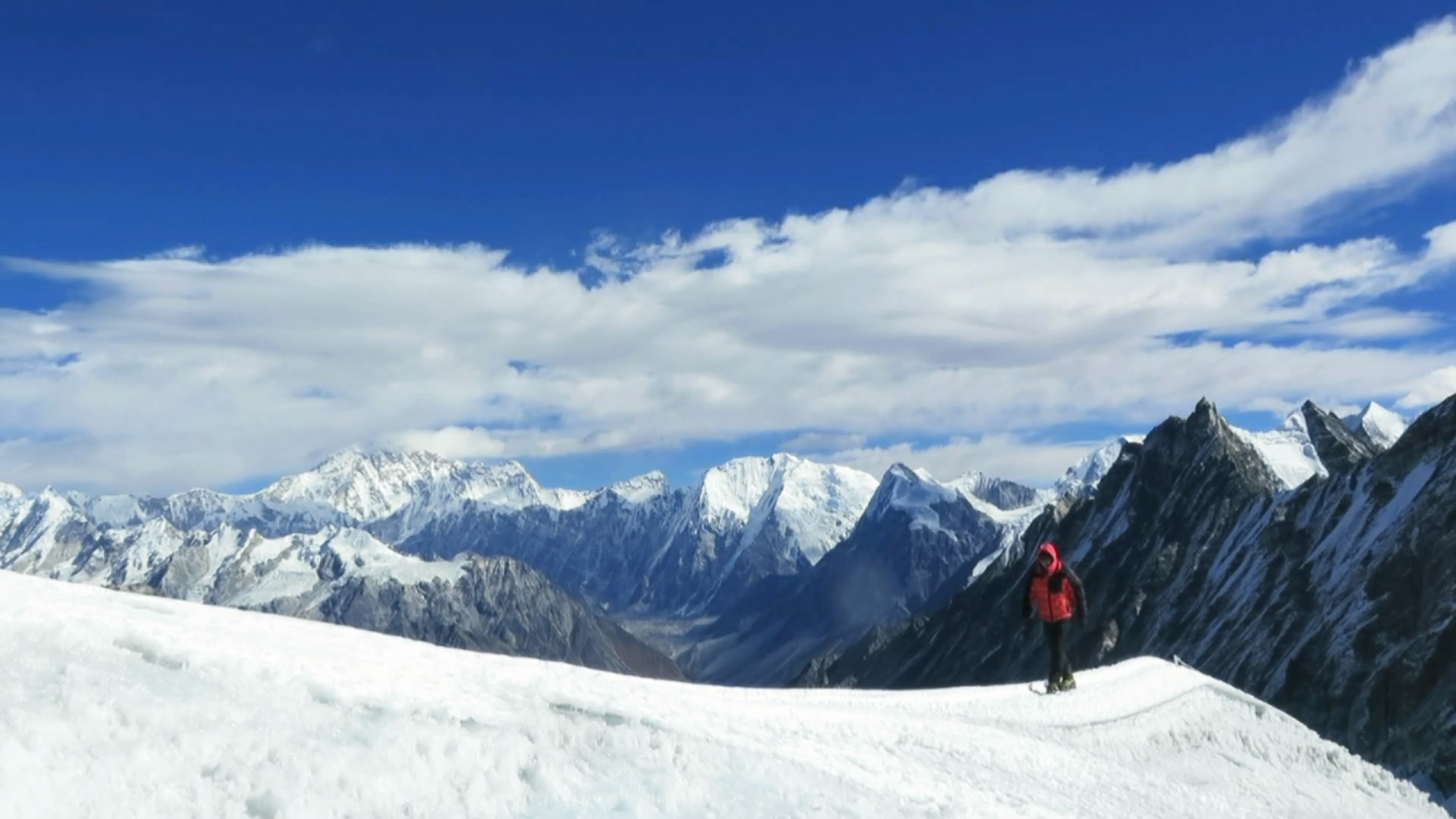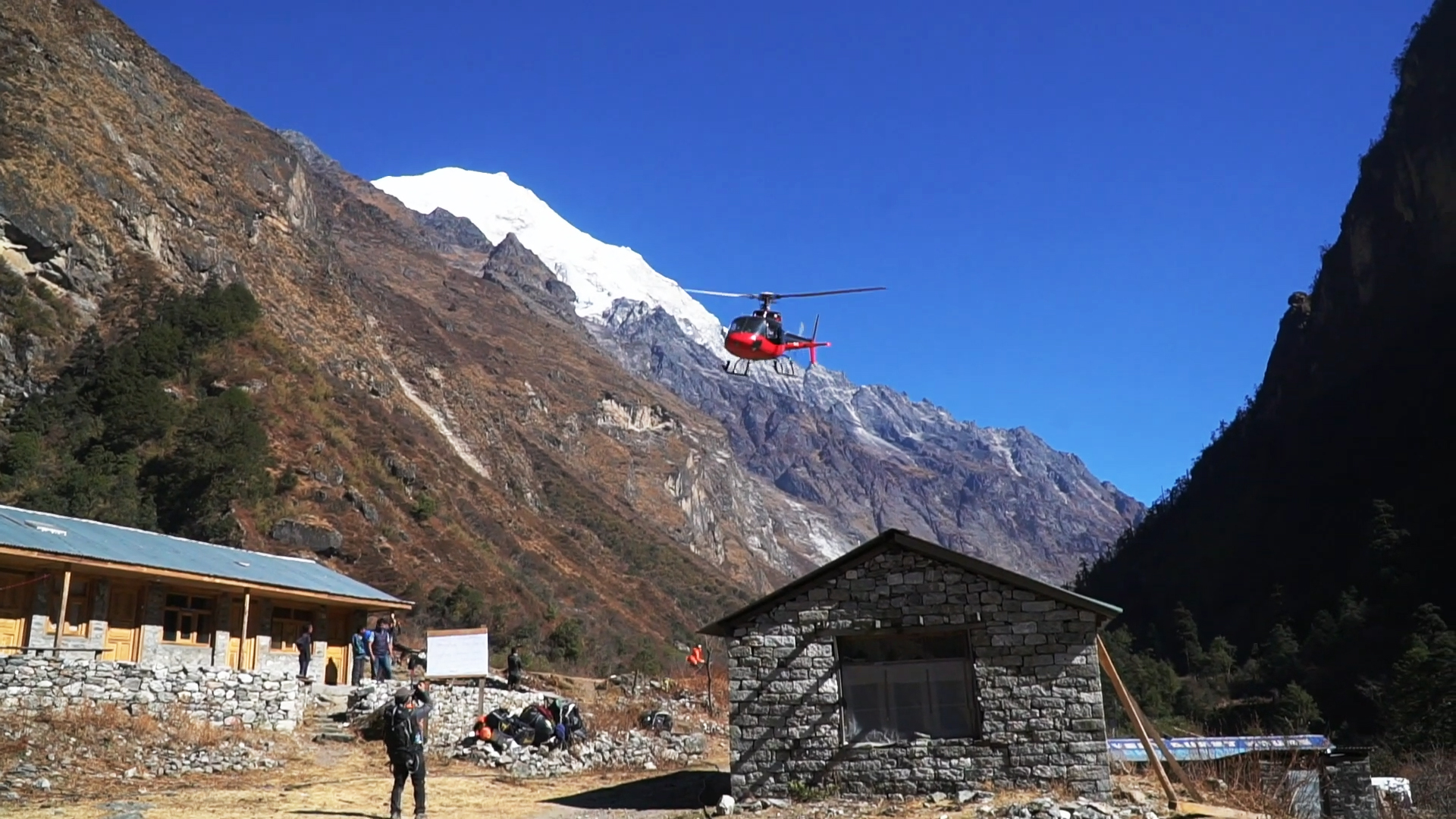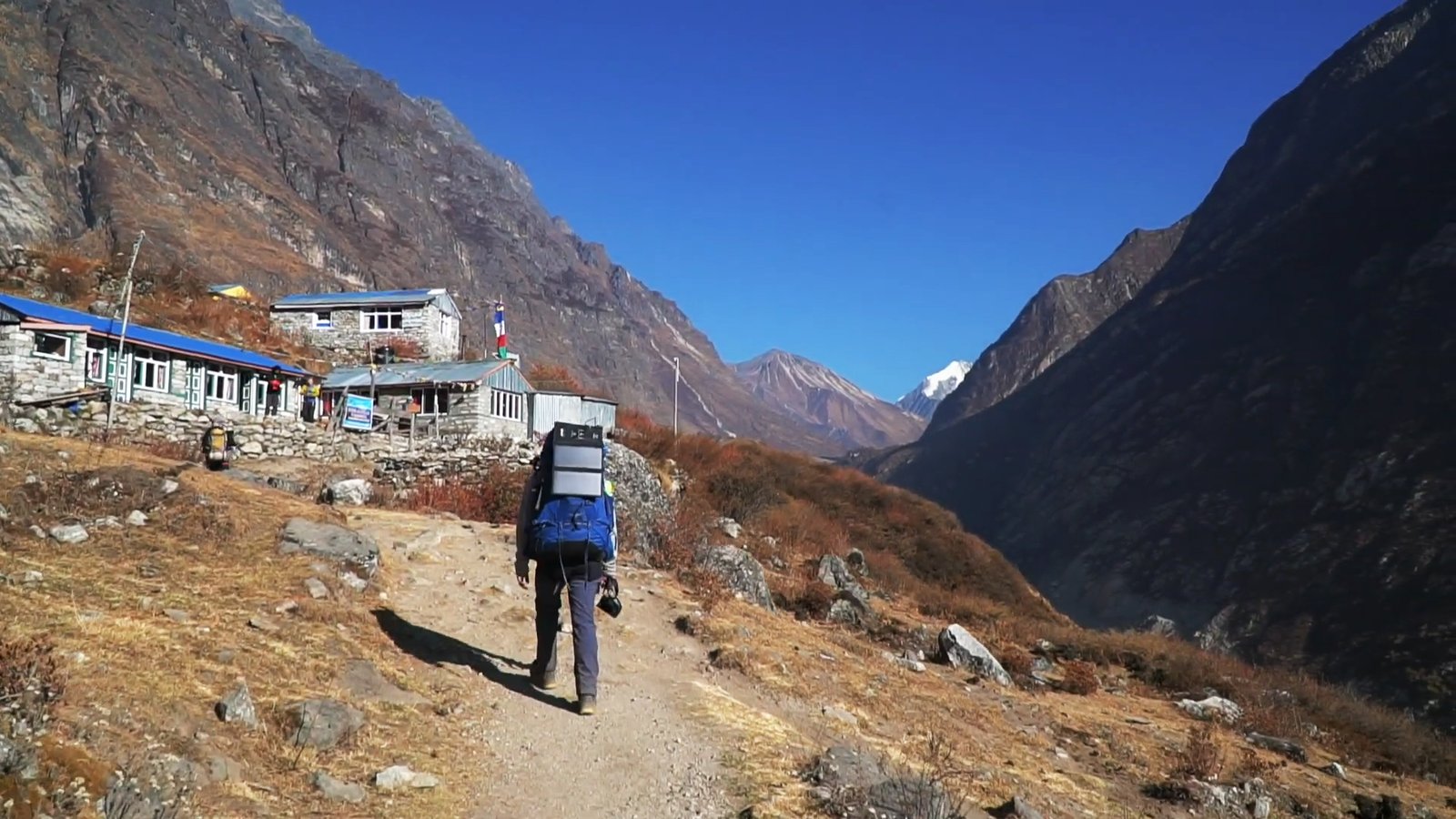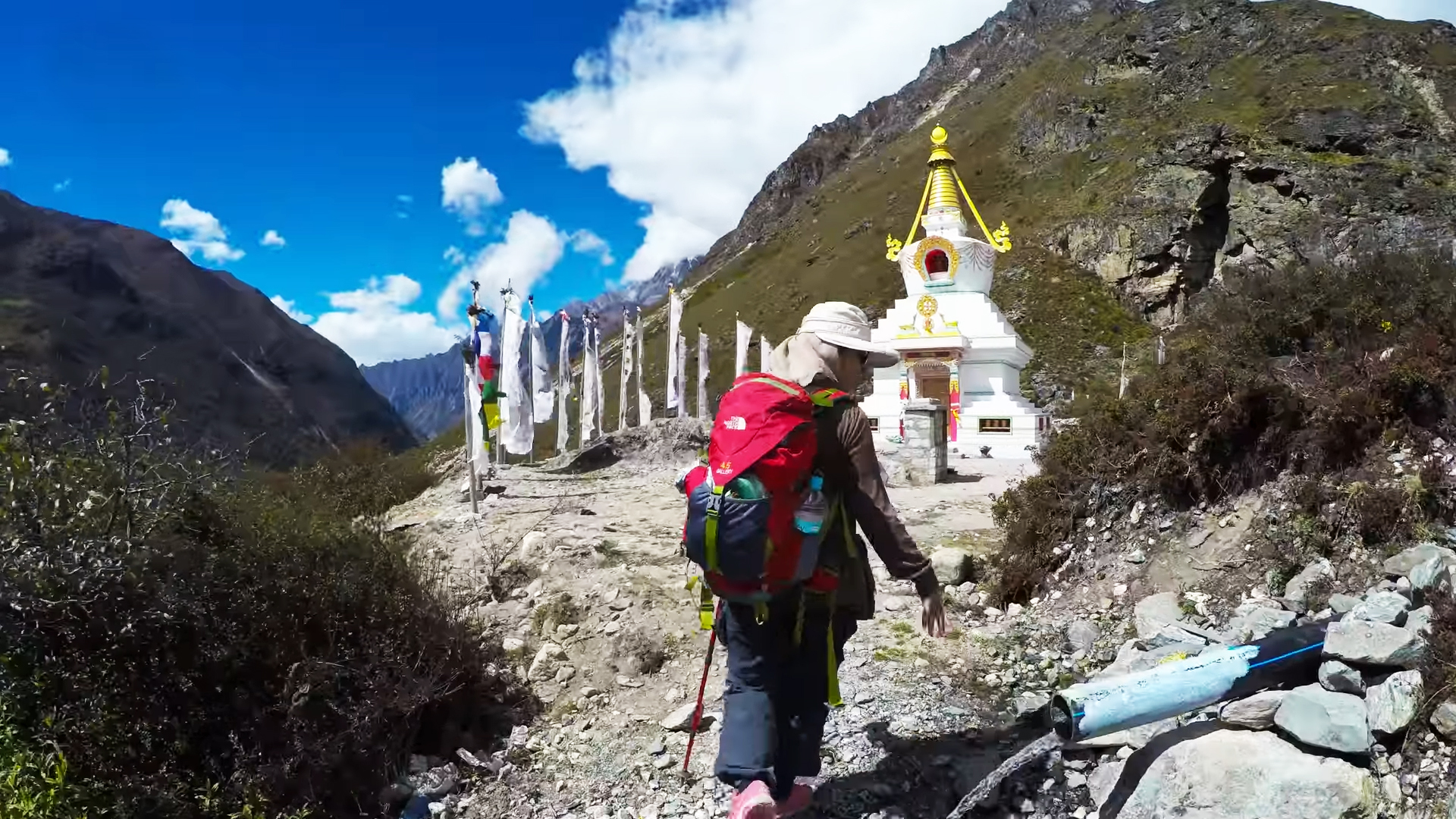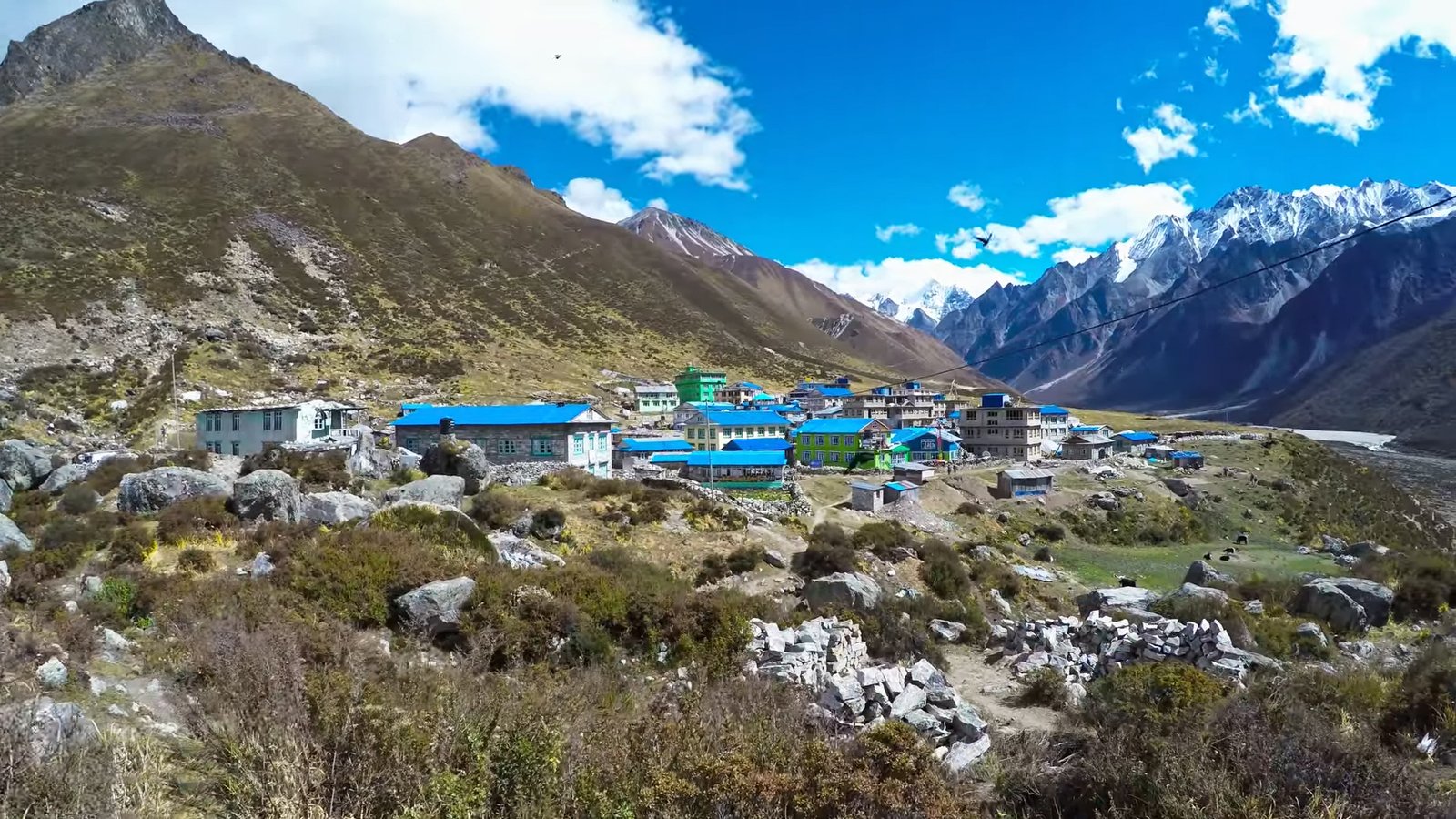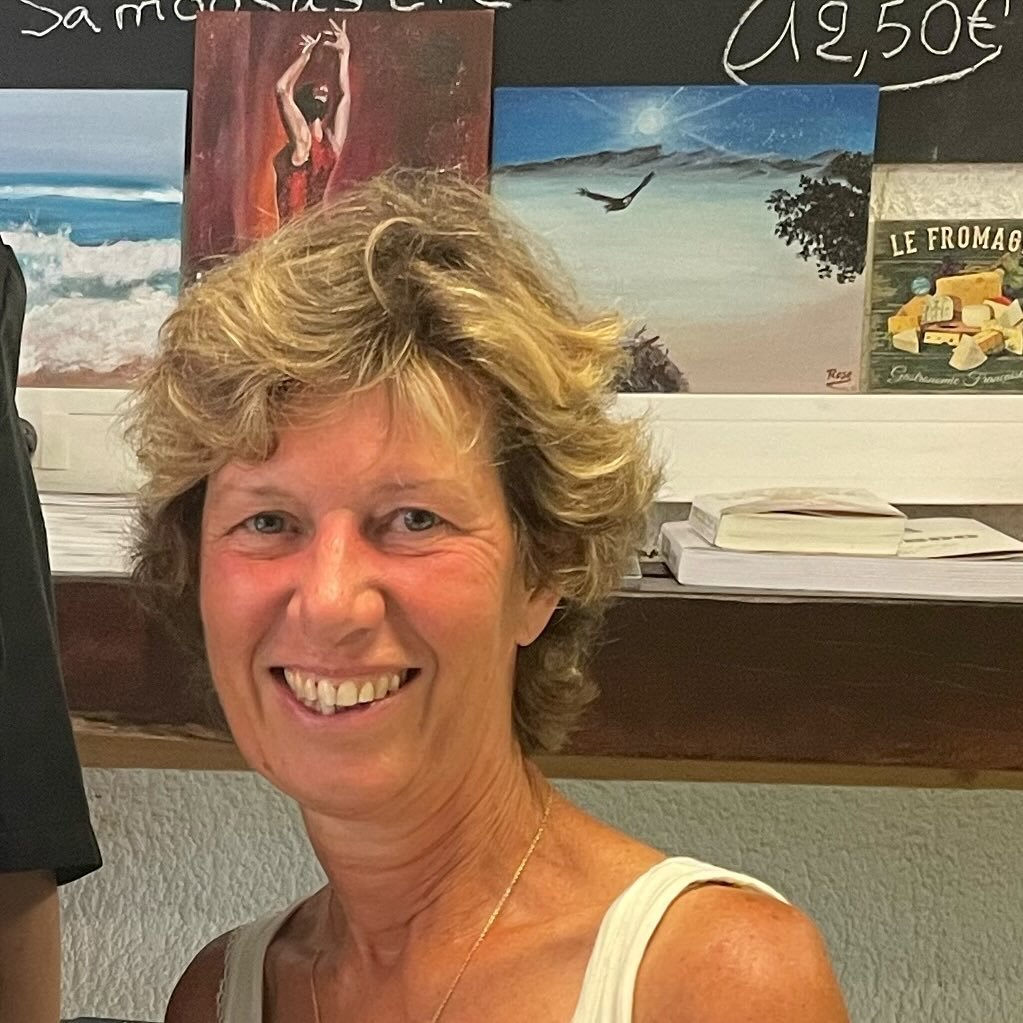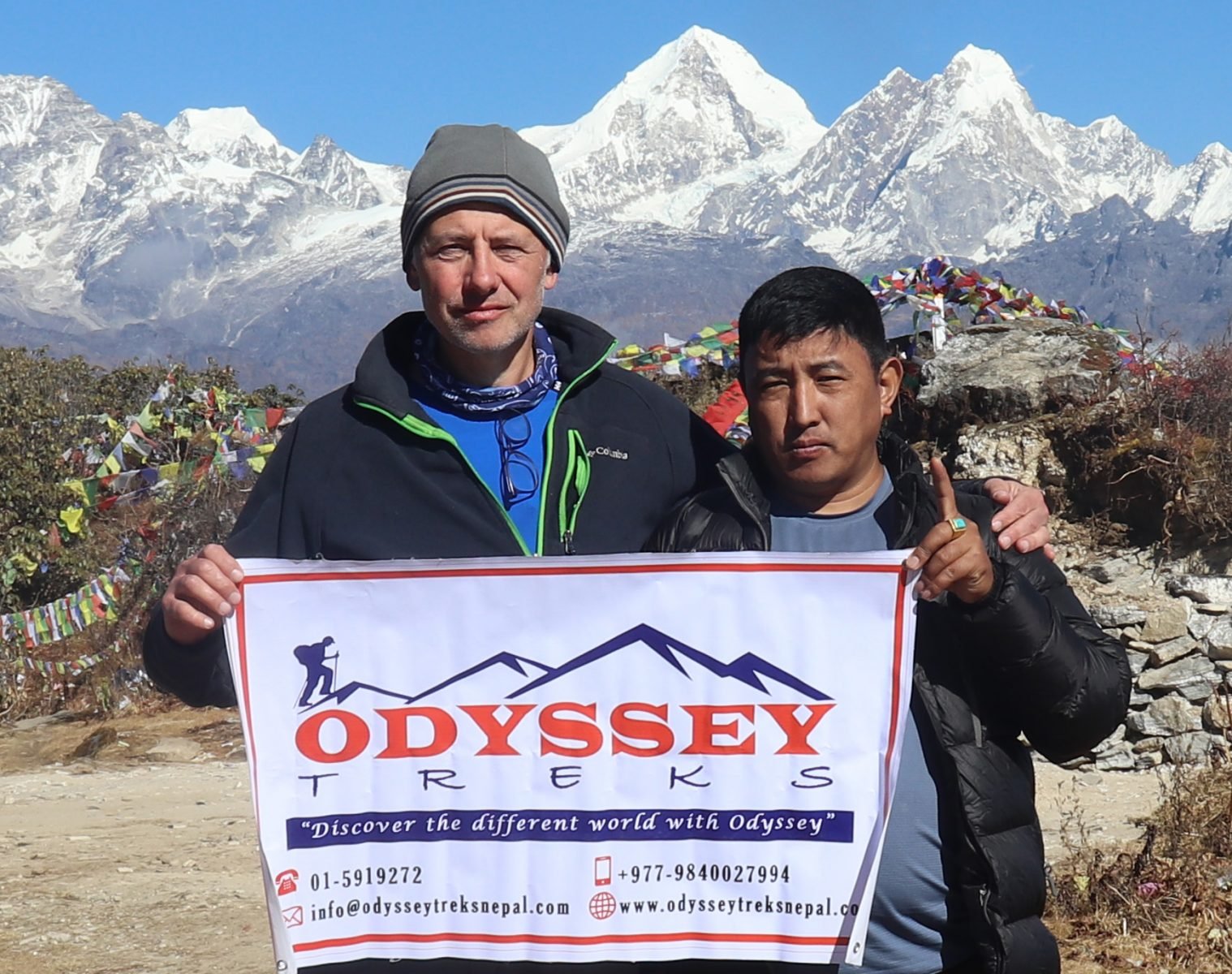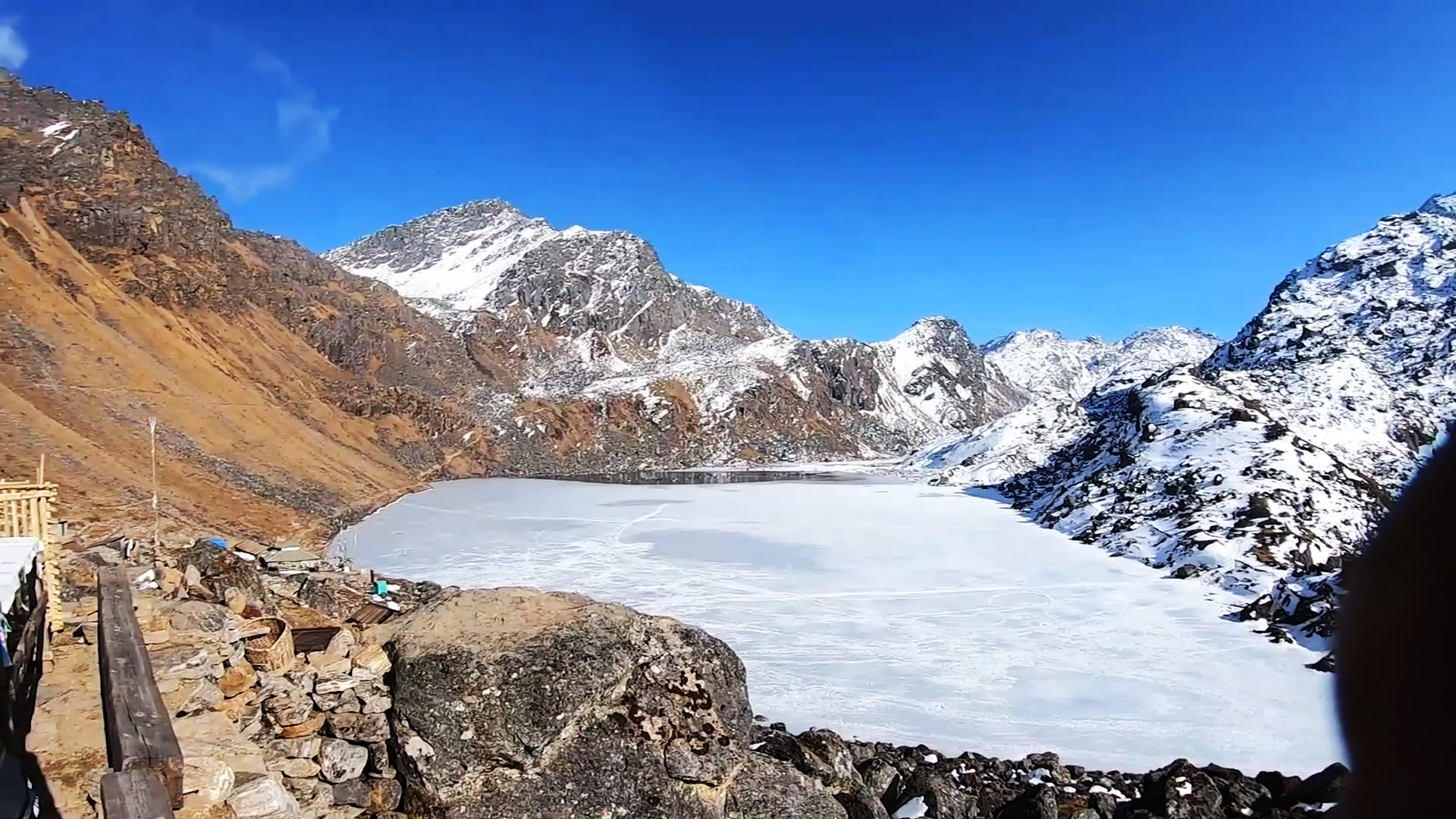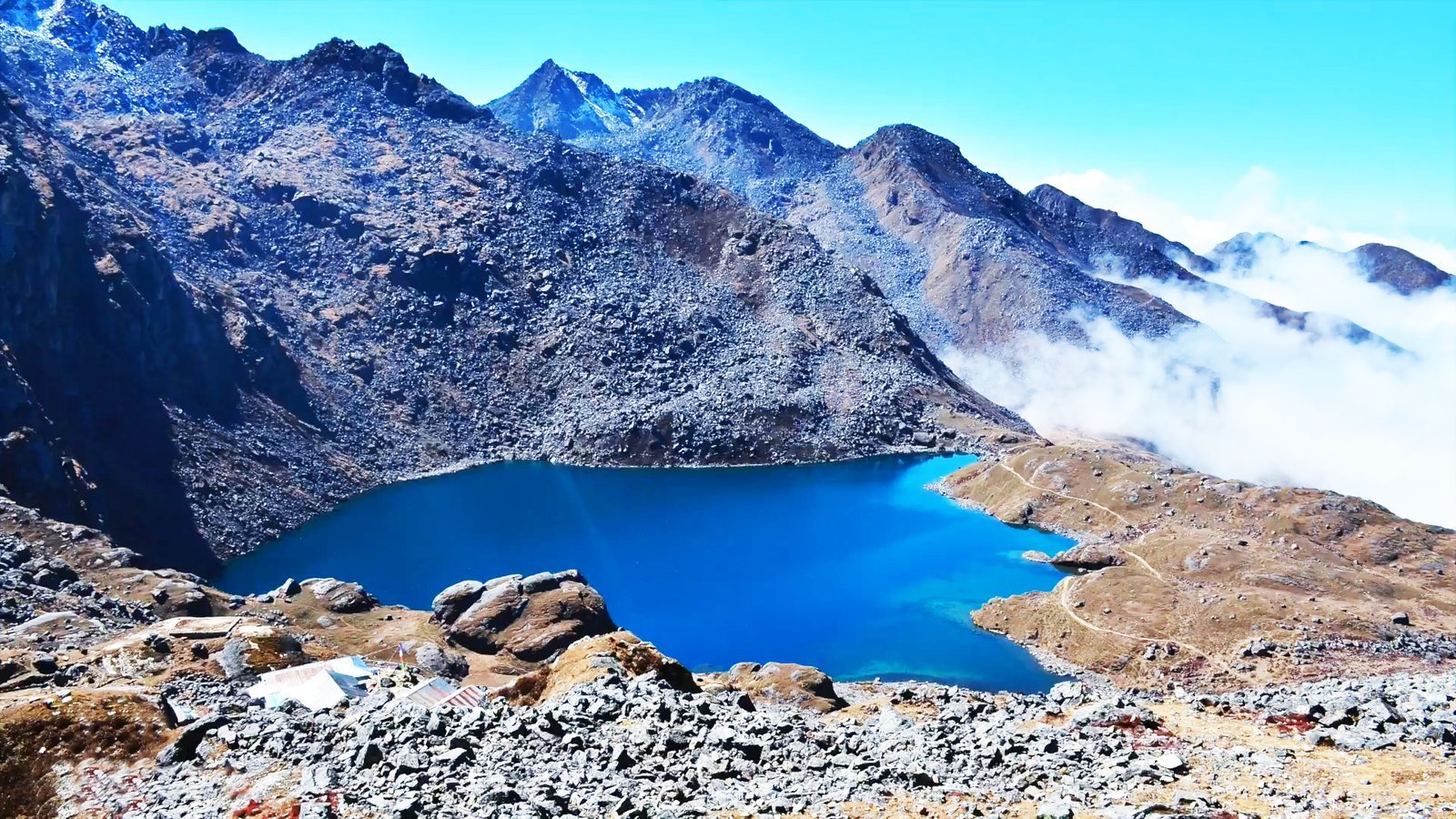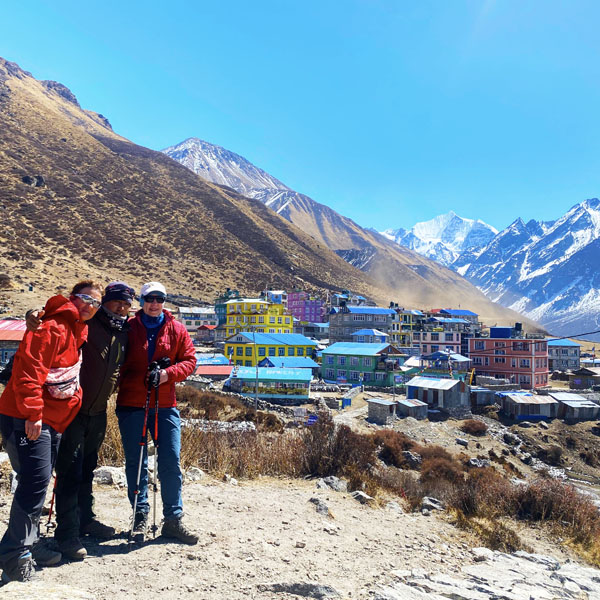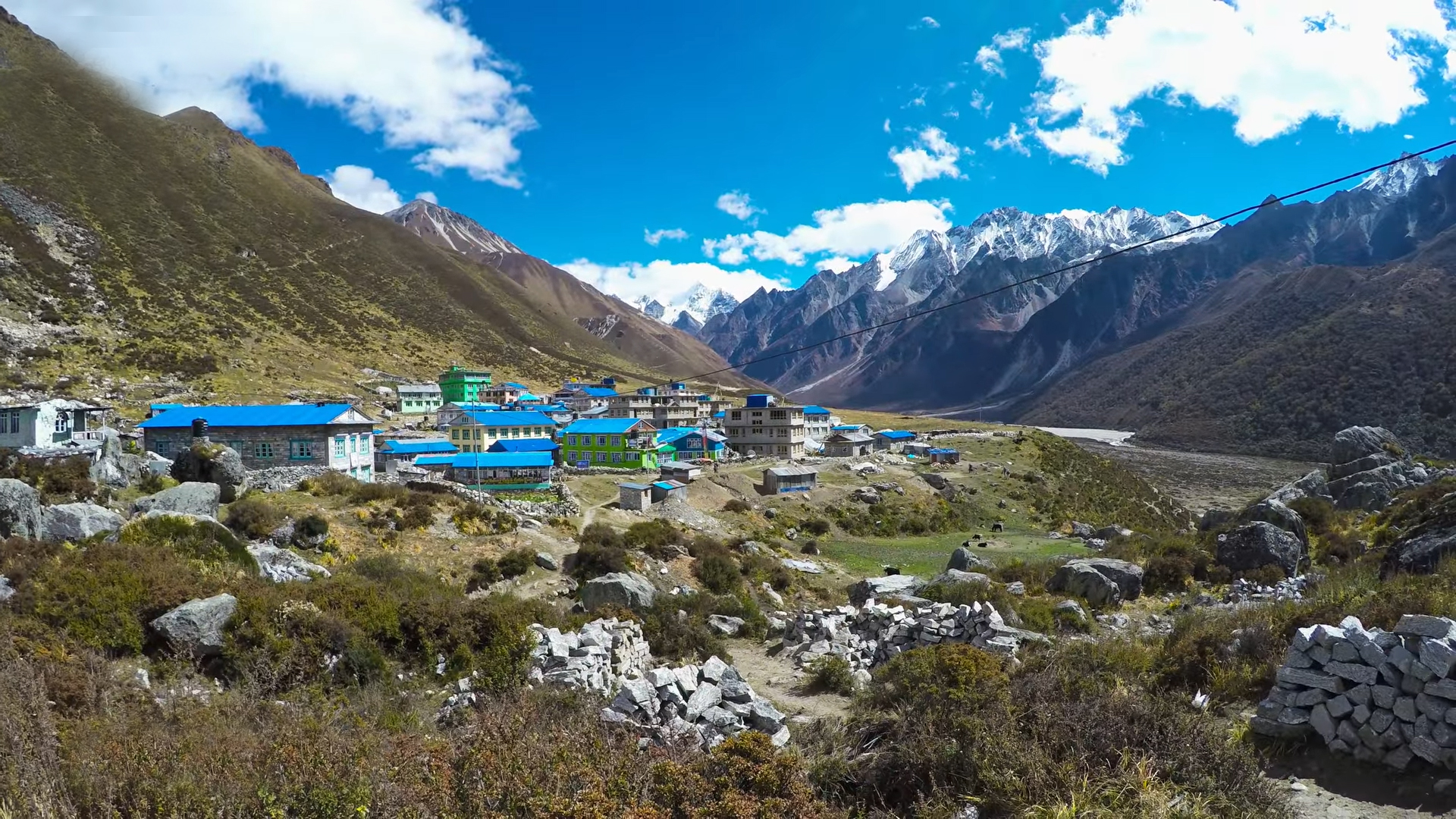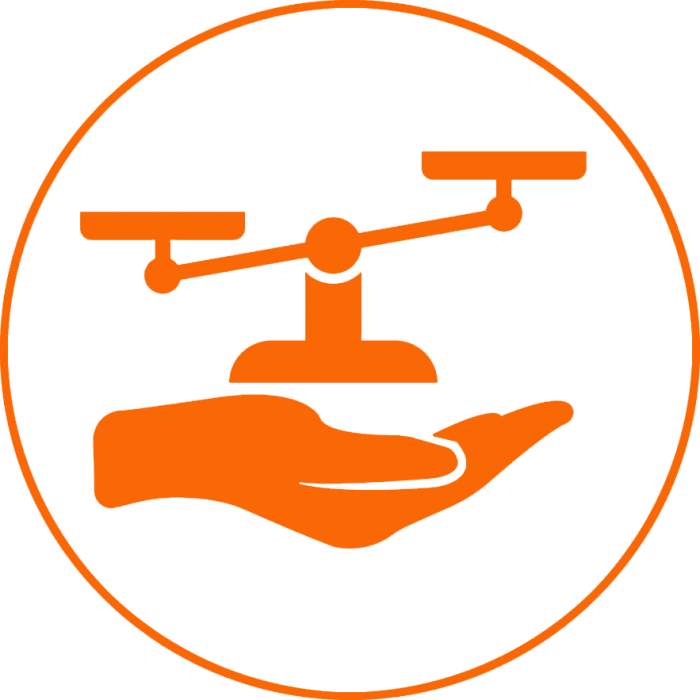Trip Overview
Introduction to Langtang Ganjala Pass Trek
The Langtang Ganjala Pass trek is another popular trekking route in the Langtang area. Ganjala Pass trekking provides a complete adventure experience. If you’re hiking in the spring, the trail’s jungle is colored and covered with rhododendrons. Ganjala Pass (5,130m) is a bit of a difficult adventure that requires good equipment and experience from local guides. Ganjala Pass makes the trek challenging with unfavorable weather conditions in Nepal.
The Langtang Ganjala Pass Trek starts in Syabrubesi and ends at the Melamchi Bazaar. From Syabrubesi, you follow the Langtang River to the east until you reach Kyanjin Gompa. There is a small Buddhist monastery in Kyanjin Gompa and a cheese factory started by the Swiss Association in 1955. The highest point of this trek is Ganjala Pass (5,130m). As you cross the pass, there are spectacular views of Langtang Lirung and the Tibetan Peak. This trek also offers the opportunity to climb small peaks and visit glaciers at a comfortably low elevation.
You may visit: Mera & Island Peak Climbing in 19 days; Cost, Itinerary, Climbing Distance
Observe the culture, traditions, and lifestyle of Langtang
For three days, there is no lodge and no settlement along the way. So you have to make good arrangements for adequate food and accommodation. The people of this region follow Buddhism, so you will find many old Buddhist monasteries in the villages. In these places inhabited by the Tamang and Helambo ethnic groups, you can observe their culture, traditions, traditional dress, and rural lifestyle. The Langtang Ganjala Pass Trek Trail takes you along the lush valleys, evergreen forests, waterfalls, rhododendron jungles, the best mountain views, and the remarkable valleys of Langtang and Helambu.
The people who live in the high mountainous area of Langtang are Nepalese, but because of their descendants of Tibetan origin, they still look like Tibetans. Towards the end of the journey, before returning to Kathmandu, you will travel through some nice rice terraces and many magnificent Buddhist monasteries around the picturesque villages of Tarke Gyang and Sermathang. Some wildlife, such as Himalayan black bears, mountain goats, Himalayan tahr, and Rhesus monkeys, are seen in this area. If you are fit enough and have an adventurous spirit, you will enjoy this trek.
You may like to visit: Island Peak Climbing in Nepal, 13 Days, Itinerary, Cost, Distance
look at an awesome trip: Annapurna Base Camp Helicopter Tour
Trip Itinerary
Drive Kathmandu to Syabrubesi (1,550m) – 8 to 9 hours.
Syabrubesi to Lama Hotel (2,480m) – 6 to 7 hours walk.
Lama Hotel to Langtang village (3541m) - 6 to 7 hours walk.
Langtang to Kyanjin Gompa (3,900m) – 3 to 4 hours walk.
Rest at Kyanjin Gompa.
Kyanjin Gompa to Nyengang Kharka (4,430m) - 7 to 8 hours walk.
Nyengang Kharka to High Camp (4,960m) - 4 to 5 hours walk.
High camp to Keldang (4,270m) via Ganja La pass (5,130m) – 8 to 9 hours walk.
Keldang to Dukpu (4,040m) – 7 to 8 hours walk.
Dukpu to Tarkegyang (2,560m) – 6 to 7 hours walk.
Excursion day at Tarkegyang.
Tarkegyang to Sermathang (2,621m) – 5 to 6 hours walk.
Sermathang to Melamchi Bazaar (850m) – 4 to 5 hours walk.
Drive Melamchi Bazar to Kathmandu – 3 to 4 hours.
Why not list the price?
Each client's needs may be different. The price of the trip varies according to the size of your group and the service you want. The cost of the trip is calculated according to the type of service and accommodation chosen by our customers.
Each trip is customized to fit the client's needs and group size, so the price of each organized trip is different. Please let us know the service you want and the size of the group. We create trips to suit your taste and travel budget per your requirements. Hope you find our price calculation reasonable according to your needs and preferences.
Frequently asked questions about this trip
How difficult is the trek?
The difficulty depends on where and how long you want to trek. The short trek is easy while the long trek requires some physical fitness.
What is altitude sickness?
Altitude sickness is normally known as acute mountain sickness. This can happen when people rapidly climb up to an altitude of more than 3000 meters. We ensure minimal risk by adding rest to our trekking itineraries. Most people will feel some effects of altitude, some shortness of breath and possibly light headache, this is normal enough. Acute mountain sickness patients are quite different and usually have a serious headache, sickness, and lose awareness. In almost all possible cases there are sufficient warning signs to take action properly. Descending to a lower altitude is usually enough to prevent any further problems.
What type of accommodation is available during the trekking?
There are mainly tea houses and lodges available for trekking and they are usually made using local materials and are very comfortable. These accommodations are often family-run and usually provide single and double rooms. The dining room is on the ground floor and is often on fire. All food will be cooked in order in the family kitchen. Toilet facilities are sometimes separate and sometimes outside. Most lodges provide mattresses and blankets. It's a good idea to always have a sleeping bag, which can be useful, and perhaps an inflatable pillow.
How long do we walk every day on trekking?
Trekking programs are classified into three different categories: soft, moderate and hard. Soft treks are only about 7 days to 10 days in duration. They generally do not go above 4000 meters; you can expect to walk about 4-5 hours each day. Moderate treks are challenging enough and long treks that go to the high hill country. Physically exhausting, this involves trekking along the cliffs of the mountains for about 6-8 hours. Harder treks are longer treks that go farther away from the general abode of trekkers and tourists. These physically challenging treks involve walking for 7- 9 hours each day.
How much weight do I need to carry on the trek?
You carry some of your personal belongings, such as warm clothing, water, snacks, sun block, cameras and more. Generally, these items will be lightweight, from 5 to 10kg (10 to 20 pounds). Our porters are available for other heavy goods and for your information one porter would be sharing by two people. The maximum weight carried by one porter is total 20 kg. this means 10 kg. per person is allowed for the trek. In case if you wish to carry more than this weight then you need to hire additional porters.
What is the best time for trekking in Nepal?
October and November are considered as the best times for trekking in Nepal due to dry season. December and January are also considered good times for trekking but it is extremely cold at high altitudes.
Google Reviews
Guest reviews
Thank you a lot for your organization about my trek. It was a superb experience; all was perfect. Karma is a very nice person and a good guide. I appreciated trekking with Odyssey (a reliable Nepal trek operator). If I come back to Nepal, I will be happy to...
Have just returned from my fourth trip to Nepal and as always Odyssey Treks organized everything superbly. We visited Makalu relatively late in the season and were rewarded with empty trails and amazing weather. Karma was as entertaining, friendly, and informative as ever along with Ang Dawa Sherpa who...

